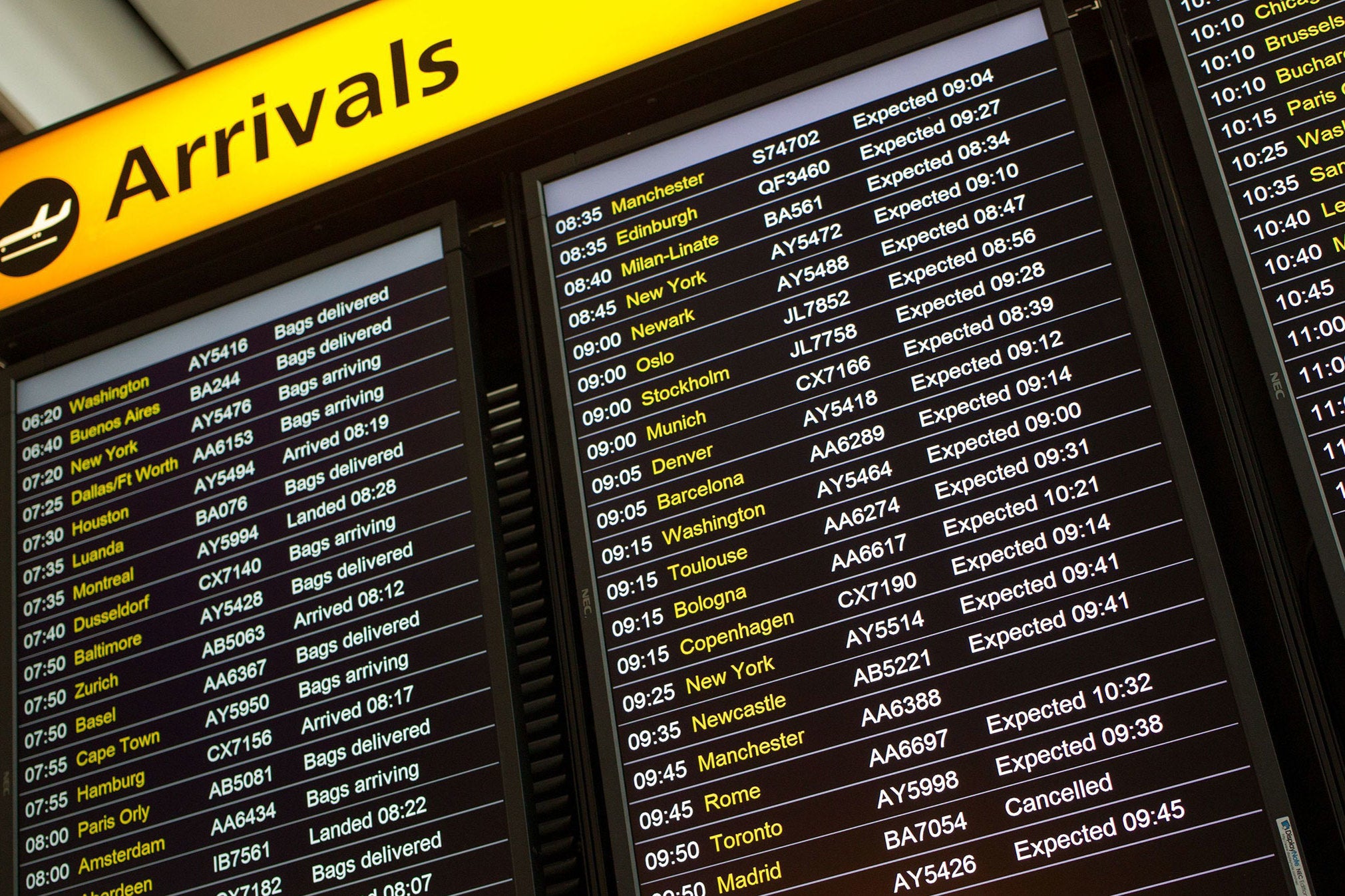Airline passengers missing out on compensation due to flawed complaints process, study finds
Exclusive: ‘The airlines can choose their own judge and jury,’ says Which? Travel investigator

Ruth Wade, a Ryanair passenger from Lisbon to Manchester in March 2016, was told 75 minutes after the flight was due to depart that it was cancelled because of an air-traffic control strike.
The airline was unable to offer an alternative flight for a further two days, so Ms Wade bought a new ticket with TAP Portugal. After accommodation and meal expenses were added, she ended up €750 (then about £600) out of pocket.
Ms Wade believed she was entitled to claim the extra costs back under European passengers’ rights rules. So she applied to The Retail Ombudsman, with whom Ryanair is registered for Alternative Dispute Resolution (ADR).
After five months, the organisation rejected her claim, saying: “Mrs Wade is not entitled to receive a refund for her alternative flight, evening meal or refreshments from Ryanair.”
At this point she showed the “Final Determination” to The Independent. It appeared the adjudicator had misinterpreted the law about the duty of care to passengers.
When The Independent questioned the decision, the organisation said: “The adjudicator acted on information at hand which did not include any response from Mrs Wade. In the absence of such response the initial decision was fair.
“However, it then became apparent that this was a miscommunication and on this basis Mrs Wade was given the opportunity to provide a response which was then put before the adjudicator. This made a material difference and on this basis the decision was reversed in her favour.”
The ADR scheme was launched in 2015 to help consumers in disputes about flight delays or cancellations and lost or damaged luggage. The Civil Aviation Authority (CAA) is the official National Enforcement Body for European passengers’ rights rules, but it is unable force airlines to pay individual claims.
So the CAA granted powers to The Retail Ombudsman and the Centre for Effective Dispute Resolution (CEDR), the world’s largest conflict management and resolution consultancy.
CEDR signed up British Airways, easyJet, Thomas Cook and TUI, while Ryanair, Virgin Atlantic, Flybe and Norwegian agreed terms with The Retail Ombudsman — whose airline business is now known as AviationADR.
But an investigation by Which? Travel, headlined “Second Rate Justice”, reveals a system which “isn’t working”, according to the investigator, Trevor Baker.
He says problems began to emerge almost at once: “For a start, consumers were confused about where to send complaints – and the airlines were in no hurry to enlighten them.
“TUI, for example, doesn’t mention anywhere on its website that it’s a member of CEDR.”
A fundamental flaw, he says, is that the two private companies are competing to attract carriers to their scheme.
In 2015, Ombudsman Services, a well-established not-for-profit dispute resolution provider, urged the CAA to appoint only one ADR scheme, saying: “It avoids confusion in the mind of the consumer and prevents companies from trading one ADR scheme off against the other and selecting the scheme that favours it the most in the decisions it makes.”
Mr Baker says: “The only people who benefit from competition between different arbitration schemes are the airlines, as they can choose their own judge and jury.
”Even the CAA’s latest figures imply that fewer than half of the consumers who’ve used an ADR scheme have actually received compensation. More than 8,500 were still waiting for their complaint to be resolved.”
The CAA told Which? Travel: “Since its introduction two years ago, the two CAA-approved ADR providers have received over 23,000 cases for decision. Of the cases decided up to the end of last year, over 11,000 (or over 76 per cent of cases where a decision has been made) have been upheld (in full or in part) in favour of the consumer.”
Dean Dunham, the chief executive of AviationADR’s parent, Consumer Dispute Resolution Ltd, says: “Our role is to ensure all parties receive a fair and reasonable outcome.
”From time to time every ADR scheme will make a mistakes. The important point is that such mistakes are recognised and put right so that there is no consumer detriment.”
Which? has called for flight delay compensation to be paid automatically — a concept strongly resisted by the airlines.
Meanwhile, says the investigator, Trevor Baker: “Although we have grave doubts about the way that the system is working, we still have to glumly advise you to use AviationADR, CEDR or even the CAA if you want to pursue compensation.”
Join our commenting forum
Join thought-provoking conversations, follow other Independent readers and see their replies
Comments
Bookmark popover
Removed from bookmarks